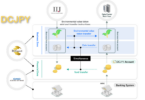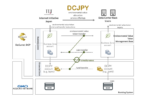Yesterday, Spanish department store chain El Corte Inglés said it is working with utility company EDP Group to use a blockchain solution for tracking renewable energy consumption.
The traceability solution will be used to validate the origin of electricity from EDP’s wind farms in Spain powering El Corte Inglés’ stores in Malaga, Seville and Madrid in Field of Nations.
The initiative is being spearheaded by EDP Renováveis (EDPR), the Spanish subsidiary of Portugal’s EDP Group and the fourth-largest generator of wind energy in the world. Spain was the world’s fifth-biggest producer of wind power in 2015, which accounts for about 19% of the total electricity production in the country, according to the Spanish Wind Energy Association and Reve.
The project between El Corte Inglés and EDPR will use the ‘Blockchain Energy Tracking’ system for real-time tracking of the origin of energy consumed. The solution will help the department store to certify a reduction in its CO2 emissions. It anticipates lowering emissions to the tune of about 101,794 cars being taken off the road for a week.
“This agreement will allow a further step in real-time knowledge of the origin of the energy consumed. It also implies an advance in the traceability and reporting process,” said Carlos Cabanas, director of Institutional Relations at El Corte Inglés.
“Thanks to the Blockchain Energy Tracking, companies will be able to assure their stakeholders that they meet their environmental objectives and we will be able to advance in the technological and digital irruption of the energy sector,” said João Manso Neto, CEO of EDPR.
EDPR’s blockchain solution will work in tandem with the traditional Guarantees of Origin issued by National Commission of Markets and Competition, to certify the renewable source of each megawatt-hour consumed by El Corte Inglés. The project is planned to run for a year.
EDP’s Brazil unit previously partnered with Austrian startup Riddle&Code to develop a blockchain solution for automatic account settlement between energy stakeholders. It was not clear if the same solution is being used in Spain. EDP Brazil later signed an agreement with Accenture to set up a Smart Energy Lab for exploring blockchain and other technologies for the public utility sector, reported Computerworld.
EDPR is not the first electricity provider in Spain to experiment with blockchain technology. In January, Iberdrola announced it completed a test project to prove the renewable origin of electricity consumed. Another Spanish renewable utility, Acciona, has developed an energy provenance solution using Energy Web Foundation’s blockchain.






